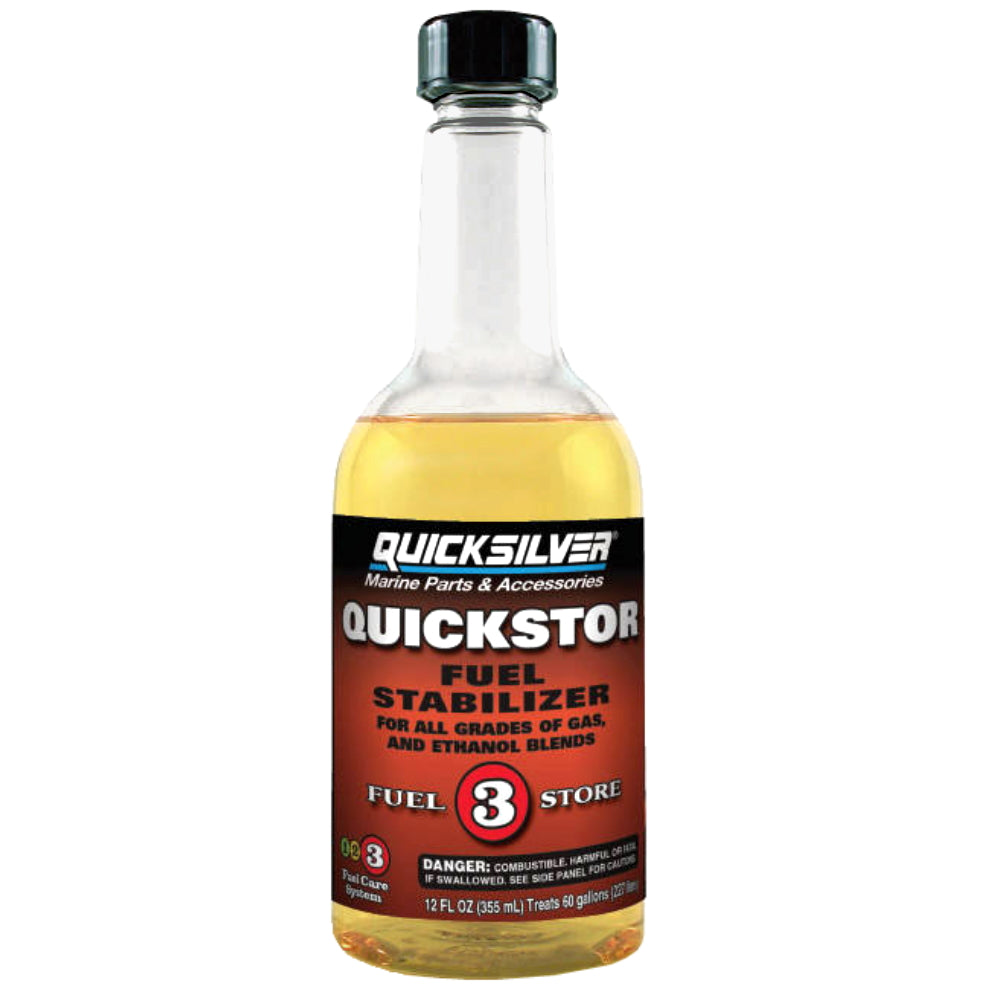Add Quickstor to fuel before storing your engine to ensure your fuel is ready to go at the start of the next season.
Use to:
-
Prevent regular and ethanol-blended fuel from breaking down and oxidizing
-
Prevent fuel system corrosion
-
Prevent gum and varnish from forming in the fuel and settling in fuel lines and tanks, carburetors and injectors
-
Keep injectors and carburetor lubricated
-
Stabilize fuel for up to a year
WHY FUEL CARE IS IMPORTANT
Fuel Additives
Even more than the gas in your car, the gas in your boat needs special care to keep your engine running at peak performance. Gasoline begins to go bad within a few weeks. When left untreated, some of the fuel components begin to oxidize and form a gum-like substance, which settles in fuel lines and tanks, carburettors, and injectors. When you try to burn this fuel, deposits can form in the combustion chamber. Over time, these deposits build up and reduce your engine’s performance.
Fuel additives keep your fuel optimized, protect your fuel system, and remove any leftover deposits. With the Quicksilver Fuel Care System, you can trust that you’re using products that are specially formulated – by the same people who design Mercury engines.
Although fuel additives can help prevent some fuel system problems, there are other ways to help prevent fuel related problems such as:
Purchase quality fuel from trusted sources:
Sometimes fuel is contaminated before it’s pumped into your tank. Buy fuel from stores that take care of underground tanks and perform the proper maintenance.
Periodically check fuel filters and fuel tanks for sediment and water:
Over time, non-ethanol-blended fuel can leave behind sediment that collects inside the walls of your fuel tank. When ethanol-blended gasoline is first used, it can strip away the build-up in your tank. Fuel filters help prevent the sediment–that can cause engine damage–from entering your engine.
Water can enter the fuel tank in a number of ways. Your local marine dealer has tools to help check for water in the fuel tank. If water is found, most engine manufacturers recommend removing all of the bad fuel and refilling with new, fresh gas.
Keep up to date with your engine manufacturer’s maintenance schedules:
To get the most from your engine, follow the maintenance schedules recommended by your engine manufacturer.

